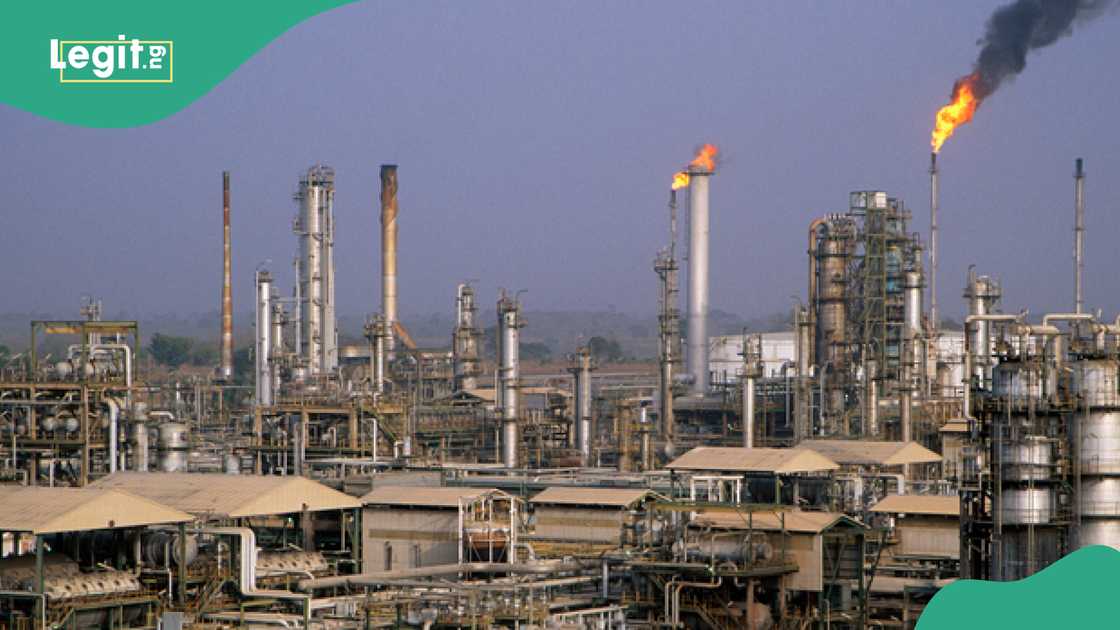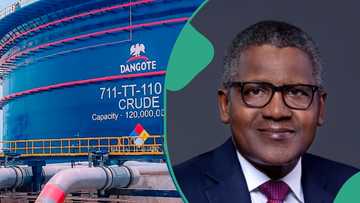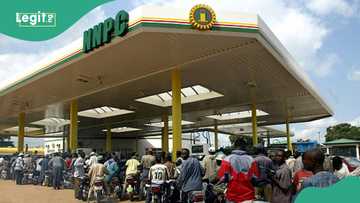Top 10 Functional Refineries in Nigeria And Their Capacity in 2025
- Nigeria’s refining capacity has improved significantly with the coming onstream of major refineries
- Recent data shows that Nigeria’s current refining capacity is about 780,000 barrels per day due to its many refining facilities
- The country boasts over 10 refineries, led by the 650,000 mega Dangote Refinery, which began operations in 2024
Legit.ng’s Pascal Oparada has reported on tech, energy, stocks, investment and the economy for over a decade.
Nigeria has experienced a significant development in its refinery capacity, with mega projects and modular facilities contributing to local fuel production.
As of 2025, Nigeria has about 10 functional refineries with varying capacities and operational relevance.

Source: Getty Images
Dangote Refinery: 650,000 bpd
The mega Dangote Refinery is Africa’s largest refining facility and the biggest single-train plant globally.
The Lekki Lagos-based refinery began operations in January 2024, processing multiple products, including petrol, diesel, aviation fuel, and liquified petroleum gas (LPG).
The giant refinery has been instrumental in reducing petrol imports in Nigeria and has helped to end fuel scarcity.
Port Harcourt Refinery: 150,000 bpd
The new Port Harcourt Refinery is part of a revamp project of the old facility. Built in 1989, the refinery is operated by the Nigerian National Petroleum Company Limited (NNPC).
It went through a major repair and restarted operations in December 2024.
Warri Refinery: 125,000 bpd, Warri
The facility was commissioned in 1978 and is another project operated by the state oil company, NNPC.
After several years of dormancy, the refinery resumed partial operations in December 2024 following a major overhaul.
NNPC says it currently operates at around 60-70% of its installed capacity.
Kaduna Refinery: 110,000 bpd
Another state-owned plant, the Kaduna refinery, was built in the early 1980s and has been plagued by underutilisation, remaining under rehabilitation since 2025.
Port Harcourt Refinery: 60,000 bpd
The original Port Harcourt Refinery was commissioned in 1965 and is also operated by the NNPC.
It resumed operations in 2024 after major repair work and currently supplies refined petroleum products to the southeast region.
Edo Refinery: 12,000 bpd
Edo Refinery started operations in 2023 under a partnership between Africa Infrastructure Partners and the Edo State government.

Source: UGC
The refinery began with 6,000 barrels per day and expanded to 12,000 in 2025.
The modular refinery contributes to diesel and naphtha availability in Nigeria, serving local and international markets.
Aradel Holdings Refinery: 11,000 bpd
The 11,000 barrels per day capacity refinery operates Nigeria’s first government-licensed modular refinery and was commissioned in 2010.
The Rivers state-based modular facility began with a 1,000 bpd capacity and expanded over time, hitting about 11,000 barrels per day.
It combines crude oil processing with power generation and gas utilisation.
OPAC Refinery – 10,000 bpd
The Delta State-based refinery is another private modular refinery, which began operation before 2025.
It plays a key role in supplying petroleum products to the Niger Delta area, focusing on diesel and other products and has helped to reduce transport costs.
Walter Smith Refinery: 5,000 bpd
The refinery began its phase one operations in 2020 at 5,000 barrels per day, and is in Imo State.
It is another privately owned facility by WalterSmith Petroman. It is currently undergoing expansion to add another 5,000 bpd-capacity by the end of 2025.
It supplies refined petroleum products such as diesel and kerosene and is touted as a model for modular refining.
Duport Midstream Refinery: 2,500 bpd, Edo State
The facility was commissioned in 2022 and is situated in the Duport Energy Park in Edo State.
The refinery produces naphtha, integrating upstream, refining, and gas processing operations under one hub.
Experts say Nigeria is rapidly advancing in its refining capacity and energy sufficiency.
As government plants return to service, private sector players will continue to expand modular capacity, reshaping the country’s domestic petroleum industry.
Marketers propose new petrol prices
Legit.ng earlier reported that the Independent Petroleum Marketers Association of Nigeria (IPMAN) has proposed a new PMS price for the Dangote Refinery.

Read also
Dangote Refinery emerges top buyer of crude in another country, prepares to hit full capacity
The association said the mega refinery should sell petrol below the current N825 per litre ex-depot price.
IPMAN’s publicity secretary, Chinedu Ukadike, disclosed this recently, stating that the refinery has all the enabling reasons to sell petrol below the current gantry price.
Source: Legit.ng





